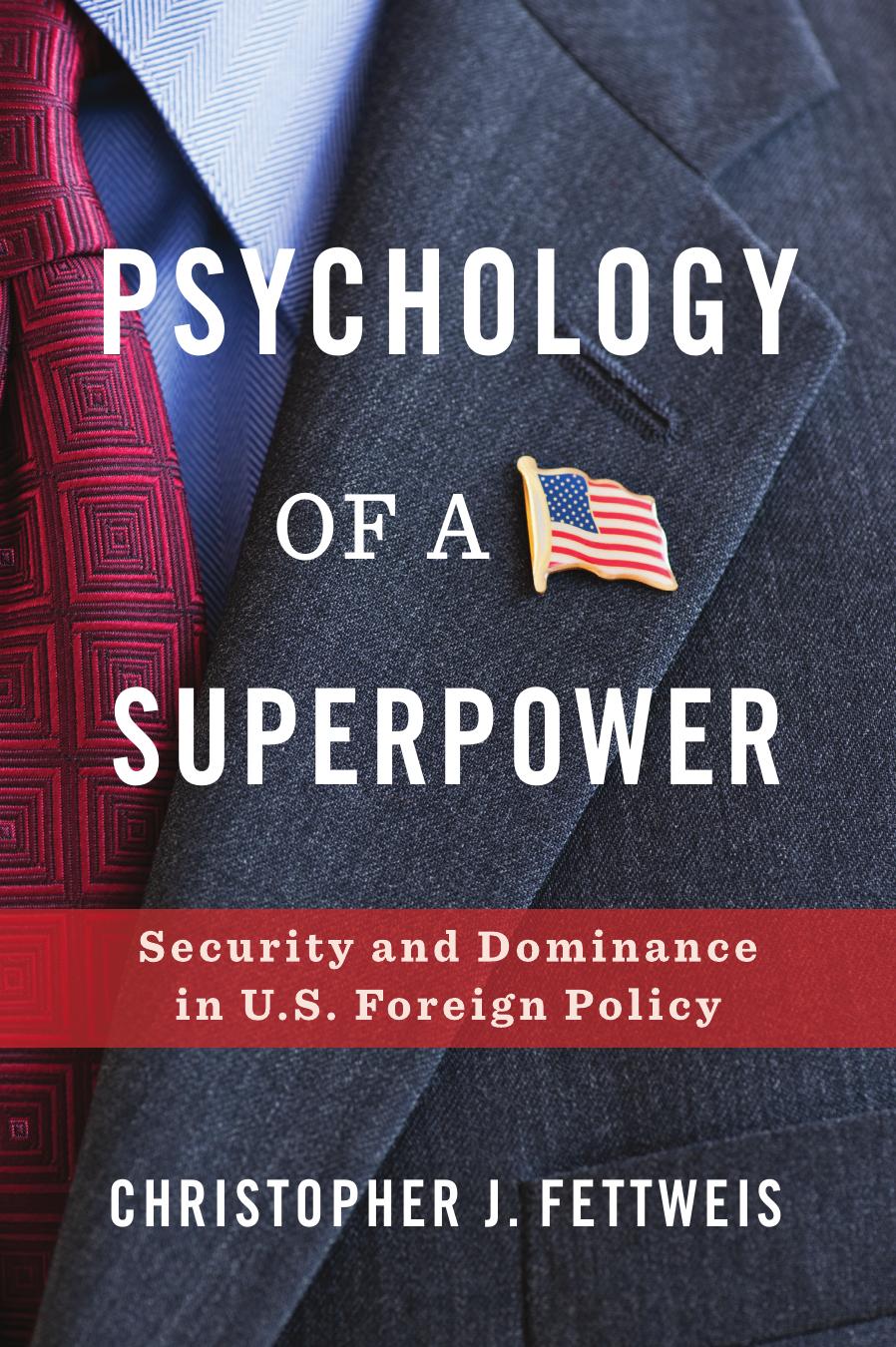Psychology of a Superpower: Security and Dominance in U.S. Foreign Policy by Christopher Fettweis

Author:Christopher Fettweis
Language: eng
Format: epub, pdf
Tags: Political Science, American Government, General, History & Theory, International Relations, Psychology, Applied Psychology
Publisher: Columbia University Press
Published: 2018-05-15T01:00:07.187000+00:00
UNIPOLAR GRAND STRATEGY
Power clouds perception. Weak states are structurally positioned to perceive events more accurately, since they are not subject to the kinds of pathologies that bedevil the strong. The less powerful are hardly unconcerned with their security—far from it—but they are often more rational about it. They may prove able to keep threats in better perspective and adjust to them accordingly. There is wisdom in their grand strategies, in other words, which the United States ignores at its peril.
The combination of the New Peace and unipolarity allows the United States to consider a different path. It can cut back on military spending and engagement without fear of economic consequence, since robust, unfettered international trade is today in the interest of all states. Risks can be minimized by investing in what Richard Betts called a “mobilization strategy,” which would hedge against unknowable future threats by “developing plans and organizing resources now so that military capabilities can be expanded quickly later if necessary.”17 Surely it is worth asking how much benefit proactive, internationalist grand strategies offer in a world with low levels of threat. And unipolarity provides the opportunity to ask such questions in relative safety.
While unipolarity’s effect on the quality of U.S. strategic analysis has been negative, its influence on quantity has been unquestionably positive. The post–Cold War era has been very good to those who make their living devising or debating U.S. grand strategy. A cottage industry analyzing the postcontainment choices facing the United States emerged before the ashes of the Soviet Union had fully cooled. And those choices were quite broad, since unipoles have a wide array of grand strategic options, all of which have been identified and discussed in no small amount of detail.18 The last thing the world needs is another review. Despite twenty-five years of effort, however, no unifying vision for post–Cold War grand strategy has yet been articulated. We have not found the new Kennan.
The deluge of post–Cold War analyses share one major point in common: Almost all strategists, from the most interventionist to the least, believe that prolonging the unipolar moment will maximize security and prosperity for the United States. That unipolarity is in the national interest is a given; it is an underlying assumption, not a proposition in need of defense. Debates over grand strategy concern how best to defend the status quo, not why, and which means will approach that end most effectively, not whether it is worth approaching in the first place. The most efficient ways to ward off balancing, that is, to dissuade the rise of military competitors, are at issue. Rare is the grand strategist who recommends that Washington willingly cede its position atop the international hierarchy.19
Advocates of primacy clearly value the unipolar moment, but many who espouse its opposite—strategic restraint—oppose primacy because of the threat it poses to U.S. status. Many restrainers believe that the way to retain top status is to cut spending and avoid the kinds of commitments that can lead to overstretch, blowback, and decline.
Download
Psychology of a Superpower: Security and Dominance in U.S. Foreign Policy by Christopher Fettweis.pdf
This site does not store any files on its server. We only index and link to content provided by other sites. Please contact the content providers to delete copyright contents if any and email us, we'll remove relevant links or contents immediately.
The Secret History by Donna Tartt(19053)
The Social Justice Warrior Handbook by Lisa De Pasquale(12187)
Thirteen Reasons Why by Jay Asher(8894)
This Is How You Lose Her by Junot Diaz(6877)
Weapons of Math Destruction by Cathy O'Neil(6267)
Zero to One by Peter Thiel(5787)
Beartown by Fredrik Backman(5737)
The Myth of the Strong Leader by Archie Brown(5500)
The Fire Next Time by James Baldwin(5431)
How Democracies Die by Steven Levitsky & Daniel Ziblatt(5216)
Promise Me, Dad by Joe Biden(5144)
Stone's Rules by Roger Stone(5081)
A Higher Loyalty: Truth, Lies, and Leadership by James Comey(4954)
100 Deadly Skills by Clint Emerson(4921)
Rise and Kill First by Ronen Bergman(4780)
Secrecy World by Jake Bernstein(4741)
The David Icke Guide to the Global Conspiracy (and how to end it) by David Icke(4709)
The Farm by Tom Rob Smith(4502)
The Doomsday Machine by Daniel Ellsberg(4484)
